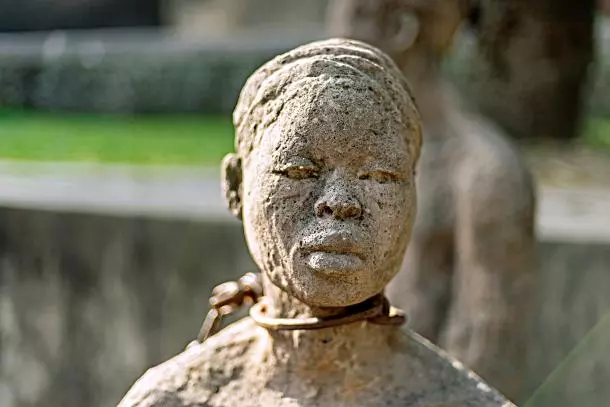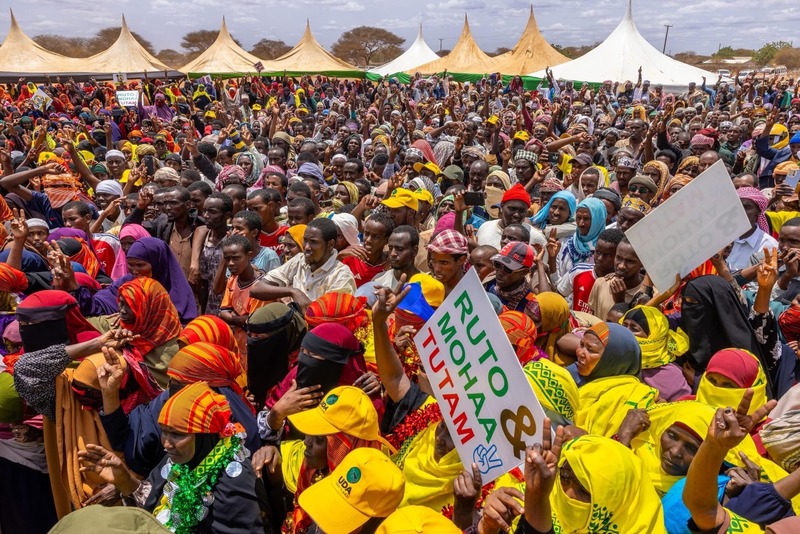UNESCO urges dialogue as world marks day for remembrance of slave trade, abolition

According to the UN, the transatlantic trade in enslaved Africans, which operated between the fifteenth and late nineteenth centuries, involved the horrific trafficking of millions of women, men, and children, mostly from West Africa to the Americas.
On this day every year, the world joins the United Nations in marking the 'International Day for the Remembrance of the Slave Trade and its Abolition'.
According to UNESCO, the day is intended to inscribe the tragedy of the slave trade in the memory of all peoples.
"In accordance with the goals of the intercultural project 'The Routes of Enslaved Peoples', it should offer an opportunity for collective consideration of the historic causes, the methods and the consequences of this tragedy, and for an analysis of the interactions to which it has given rise between Africa, Europe, the Americas and the Caribbean," UNESCO stated.
More To Read
- World marks UN day honouring victims of religion-based violence
- UN calls for unity, support on day of remembrance for terrorism victims
- ‘Africa is poised for progress’ Guterres tells development conference in Japan
- Amid ongoing Israeli attacks, ‘the systematic destruction of Gaza City is already underway’: UN rights office
- Kenya tightens terrorism cases with mandatory terror-financing investigations
- DR Congo: UN condemns deadly attacks in the east of the country
Monuments of slaves in Stone Town, Zanzibar, Tanzania, as well as the coastal parts of Kenya, are the closest reminders to younger generations of the long-time existence of the slave trade that ended following the start of an uprising that played a crucial role in its abolition on August 23, 1971.
"It is against this background that is commemorated on 23 August each year. It was first celebrated in several countries, in particular in Haiti (August 23, 1998) and Gorée Island in Senegal ( August 23, 1999)," it added.
According to the UN, the transatlantic trade in enslaved Africans, which operated between the fifteenth and late nineteenth centuries, involved the horrific trafficking of millions of women, men, and children, mostly from West Africa to the Americas.
This forced displacement enriched imperial and other powers and gave rise to false narratives of white supremacy and racial inferiority, which were used to justify this shameful practice and which continue to plague societies today.
"Because the transatlantic trade in enslaved Africans had a direct effect on our modern conceptions of race, an understanding of this period is necessary to fight its legacies, including racism and prejudice. The International Day of Remembrance of the Victims of Slavery and the Transatlantic Slave Trade is, therefore, not just about remembering the past. It is about taking action today to dismantle the structures that continue to hold back people of African descent," said the UN.
The day also seeks to recognise the equal and unconditional dignity of all while remembering the victims of the past atrocities as an inspiration to build just societies.
"The International Day of Remembrance of the Victims of Slavery and the Transatlantic Slave Trade is a time for reflection. But it is also a time for education. Despite myths to the contrary, enslaved Africans enriched the Americas not just through their labour but also through a transfer of vital skills and knowledge. In addition, rather than accepting their fate, they engaged in powerful acts of resistance," noted the UN.
The day was recognised by the United Nations General Assembly in 2006 through a resolution that recognised that the slave trade and slavery are among the worst violations of human rights in the history of humanity, bearing in mind particularly their scale and duration.
The resolution designated March 25, 2007, as the International Day for the Commemoration of the 200th Anniversary of the Abolition of the Transatlantic Slave Trade.
The following year, through another resolution, it designated March 25 as an annual International Day of Remembrance of the Victims of Slavery and the Transatlantic Slave Trade. The day is marked when the abolition of the Slave Trade Act was passed in the United Kingdom on March 25, 1807.
"From that day on, "all manner of dealing and reading in the purchase, sale, barter, or transfer of slaves or of persons intending to be sold, transferred, used, or dealt with as slaves, practiced or carried in, at, or from any part of the coast or countries of Africa shall be abolished, prohibited and declared to be unlawful".
Despite these efforts, the UN, however, noted that while the act abolished the transatlantic trade in enslaved Africans, it did not abolish slavery, which continued for decades.
"The abolition followed powerful and sustained acts of resistance by enslaved Africans, including the Haitian revolution, which led to the establishment in 1804 of the Republic of Haiti – the first nation to become independent as a result of the struggle of enslaved women and men," the UN added.
Top Stories Today














































